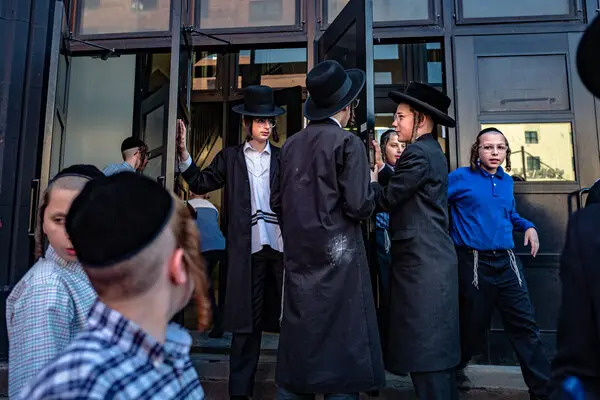In the final days of negotiations over New York State’s $254 billion budget, lawmakers and Governor Kathy Hochul are weighing a contentious proposal that would significantly roll back state oversight of private religious schools. The measure—backed by leaders of the Hasidic Jewish community and their political representatives—has alarmed education experts and child‐advocacy groups who warn it could leave thousands of students without access to even a basic secular curriculum in English, math, and science.
Proposal Details and Legislative Context
Under current law, private schools—including religious institutions—must demonstrate “substantial equivalency” to public schools by teaching core academic subjects. The budget‐negotiation proposal under discussion would:
- Lower the threshold schools must meet to prove compliance with secular‐education requirements.
- Delay or eliminate penalties for schools found out of compliance, even if they accept taxpayer dollars through vouchers or state aid.
- Potentially remove routine inspections by the State Education Department (SED), placing enforcement into a reactive, complaint‐based model.
Although the changes would ostensibly apply to all private schools in New York, their most immediate beneficiaries would be Hasidic yeshivas, which often conduct instruction primarily in Yiddish and Hebrew and have been cited in recent years for failing to teach adequate English literacy and math skills.

Opposition from Education Authorities
State Education Commissioner Betty A. Rosa condemned the proposal as a “travesty” for the children it affects. In an interview, Rosa warned that diluting the “substantial equivalency” standard would compromise students’ futures by denying them foundational skills necessary for higher education and the workforce.
“We would be truly compromising the future of these young people,” Rosa said. “As the architect of education in this system, how could I possibly support that decision?”
Rosa noted that while religious instruction is a vital part of cultural identity, it must be balanced with a secular education that equips all students to participate fully in American society.
Political Calculations and Community Pressure
The push to ease oversight has been driven by years of lobbying from Hasidic community leaders, who argue that the state’s requirements infringe on religious freedom and parental rights. Hasidic yeshiva advocates point to their right to manage their own schools under the U.S. Constitution’s Free Exercise Clause.
Legislative leaders and Hochul’s office have so far declined to release detailed language of the proposal, but insiders confirm that it remains a central bargaining chip in the budget talks. Governor Hochul, who on Monday announced a broad budget agreement, acknowledged that private‐school oversight is among the “many particulars still being hashed out.”
“We want to respect religious autonomy while ensuring every child gets a fair chance,” Hochul said. “We’re working to find the right balance.”
Concerns Over Educational Equity
Child‐advocacy groups fear that weakening oversight will exacerbate educational inequities already evident in certain religious‐school sectors. A 2023 state audit found that in some Hasidic schools, fewer than half of students in tested grades scored proficient in English language arts or mathematics.
Advocates for Children of New York issued a statement calling the proposal “a step backward” that would leave vulnerable students behind and undermine decades of progress in raising statewide academic standards.
What’s Next
With the state budget deadline fast approaching, the fate of the oversight rollback remains uncertain. If included in the final budget, the changes could take effect as soon as July 1. The SED and the State Board of Regents will then face the challenge of implementing revised regulations and ensuring that all New York students—not just those in religious schools—receive the education they need to succeed.
Meanwhile, civic groups are preparing legal challenges, arguing that the modifications violate the state Constitution’s guarantee of a “sound, basic education” for every child. The coming weeks promise intense debate in Albany—and potentially in the courts—over how New York balances religious liberty with its responsibility to all students.